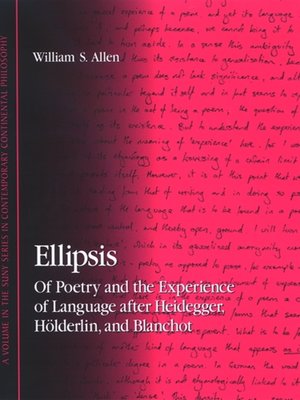Ellipsis
ebook ∣ Of Poetry and the Experience of Language after Heidegger, Holderlin, and Blanchot · SUNY Series in Contemporary Continental Philosophy
By William S. Allen

Sign up to save your library
With an OverDrive account, you can save your favorite libraries for at-a-glance information about availability. Find out more about OverDrive accounts.
Find this title in Libby, the library reading app by OverDrive.



Search for a digital library with this title
Title found at these libraries:
| Loading... |
What is the nature of poetic language when its experience involves an encounter with finitude; with failure, loss, and absence? For Martin Heidegger this experience is central to any thinking that would seek to articulate the meaning of being, but for Friedrich Hölderlin and Maurice Blanchot it is a mark of the tragic and unanswerable demands of poetic language. In Ellipsis, a rigorous, original study on the language of poetry, the language of philosophy, and the limits of the word, William S. Allen offers the first in-depth examination of the development of Heidegger's thinking of poetic language—which remains his most radical and yet most misunderstood work—that carefully balances it with the impossible demands of this experience of finitude, an experience of which Hölderlin and Blanchot have provided the most searching examinations. In bringing language up against its limits, Allen shows that poetic language not only exposes thinking to its abyssal grounds, but also indicates how the limits of our existence come themselves, traumatically, impossibly, to speak.






